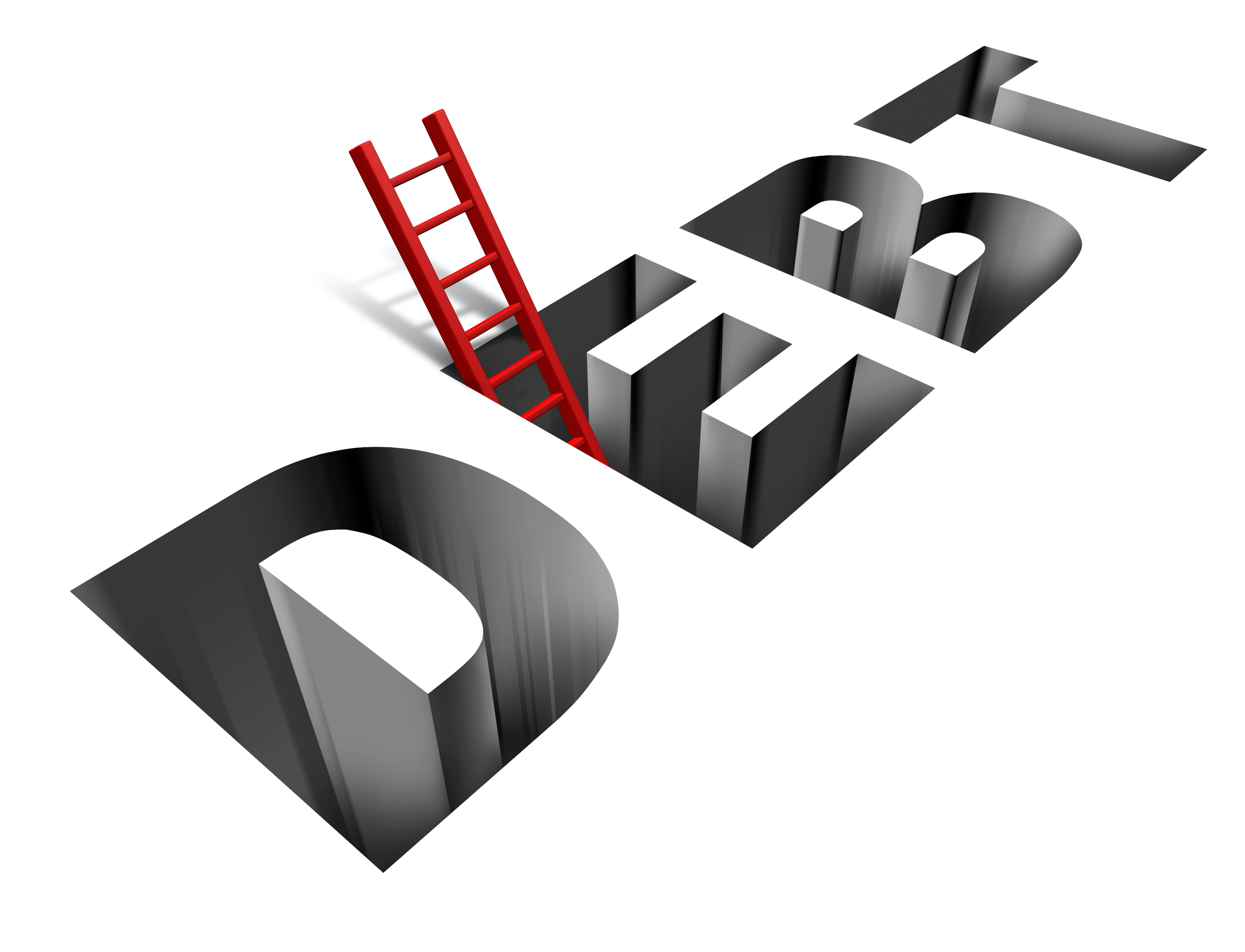“For the love of money is a root of all kinds of evil. Some people, eager for money, have wandered from the faith and pierced themselves with many griefs.” 1 Timothy 6:10 NIV
Is money inherently evil? No, money is a tool. The Bible specifically says that the “love” of money is evil. If we put money above God in any way, our relationship with money is unhealthy. We know that money can be used for great causes and can be a blessing in many ways. Given to a family in need, money might be the reason that family successfully makes it through a hard time or tough season in their lives. Likewise, money can be used for gambling or other addictions. It can become an idol and so sought after that is drives us to put money and our jobs above not only our families, ourselves but even God.
Well how about debt? Is debt evil? We are all familiar with Proverbs 22:7 that states, “The rich rule over the poor, and the borrower is slave to the lender.” Is this saying that debt is bad? It can be, however I have not seen a verse in the Bible that states that as a Christian, you should not use or have debt. In fact, the Bible never states that you should not use debt. It does state however many times, that you should use extreme caution when doing so. Just like money can be used as a tool for good reasons and for bad, debt is the same way.
First, It is important to understand the types of debts. There is oppressive debt or destructive debt which shows up as many types of consumer loans. These are typically credit cards, vehicle loans and student loans. Most of these types of loans have crushingly high interest rates. Even though some car loans or student loans might have lower interest rates, because of easy access, they typically encourage you to borrow much more than you should and thus the reason to include them in this category.
There is another type of debt however that we rarely discuss from a biblical perspective. This is the same debt that churches use to build new buildings and campuses and that companies use in order to grow their respective businesses. It is used often by real estate investors when they acquire a new rental property. It has been referred to as the “good” debt, wealth creation debt or constructive debt. This debt, typically is at a lower interest rate and is intentionally invested into something that can gain in value greater than the interest rate being charged. For example, borrowing money at 4% and investing into something that can make 7% or borrowing money from a bank in order to buy a rental property where the income from the property more than pays for the mortgage payment. By doing this, the borrower is able to increase in wealth.
So is “good” debt bad? I believe that depends on how it is being used and what our relationship with money really is. Matthew 6:24 says, ““No one can serve two masters. Either you will hate the one and love the other, or you will be devoted to the one and despise the other. You cannot serve both God and money.” So what is your relationship money? Whether rich or poor, If you are so in debt that it consumes you, I believe this is wrong. I also believe that if you are so in love with the idea of being wealthy or wealthier and you are pursuing riches of this world, that is wrong as well. Even “good” debt can be used incorrectly with negative consequences and must be managed very diligently.
As Christians, we need to be storing up treasures in heaven and we should not be so consumed about our “wealth” in this world. If we are right with God and our relationship with money being used as a tool for good and to further His Kingdom, then I do think it is okay to use “good/constructive” debt for gaining additional wealth.
Personally I have paid off all consumer and oppressive debt but regularly use “good” debt to build wealth through real estate investments and for my business. This has allowed me to increase my personal net worth and income, which in turn, increases my tithe and giving, allowing me to be a blessing to even more people.
The truth is, there are many christians right now that are so focused on paying off their debts (both bad and good debt) that they are losing productive years and will not have enough money to retire. Instead they will either have to accept a much lower lifestyle in retirement or they will run out of money.
Many people that find themselves in this situation are often forced into making the decision of selling their house and downsizing or taking out a reverse mortgage (more debt) in order to get by in retirement. When people find themselves in this situation, obviously the amount of their giving and their ability to be a blessing to others is greatly diminished.
So, is having debt a sin? I am a christian and a Certified Financial Planner™, but I am not a biblical scholar. From what I can tell however, is that having debt is not considered a sin. It is something to be weighed heavily in your heart and your overall financial plan. As I teach in Phase I, the Foundation Phase, I believe that you need to payoff all consumer and oppressive debt before you move on to Phase II and start really Accumulating Wealth. Once in Phase II, I believe that you should look at your individual situation, determine the health of your relationship with money and work with your advisors and determine if utilizing “good” debt might benefit you, so that you might have the ability to be in even bigger blessing and benefit others.
What do you think, is all debt bad? Is debt a sin? Leave a comment below.













